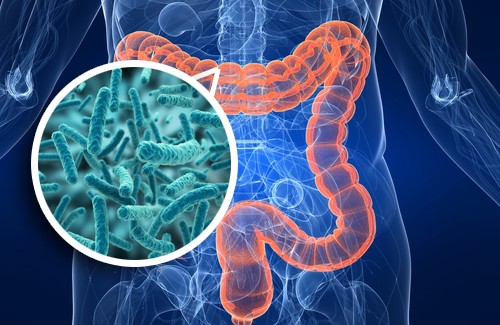Source: Thailand Medical News Jun 17, 2019 5 years, 10 months, 1 week, 2 days, 20 hours, 31 minutes ago
Researchers from the University Of Virginia Cancer Center have discovered a link between unhealthy or unbalanced gut microbiome( commensal dysbiosis) and aggressive metastatic breast cancer.

Dr Melanie Rutkowski, from the Department of Microbiology, Immunology and Cancer Biology and also lead author in the study, found that if the gut microbiome of animal models are altered, their hormone-receptor-positive breast cancer turned more aggressive. In an interview with Thailand Medical News, she explained, “When the microbiome's equilibrium is disrupted by chronically treating them antibiotics, it resulted in inflammation systemically and within the mammary tissue. In this condition, tumor cells were much more able to disseminate from the tissue into the blood and to the lungs, which is a major site for hormone receptor-positive breast cancer to metastasize.”
In the next part of their study they transplanted the unhealthy microbiome from their animal models to other specimens with HR positive breast cancer using fecal transplant. The results were similar among the recipient specimens, proving the direct effect of the microbiome on the aggressiveness conversion of the breast cancer.
Hormone receptor positive cancers or breast cancers that grow under the influence of hormones estrogen and progesterone form around 65 percent of all breast cancers. These cancers are more responsive to hormone therapy. How these cancers will spread and grow is dependent of several factors seen at the time of diagnosis, such as the presence of high levels of immune cells called macrophages within the tissues . Even high amounts of the structural protein collagen in the tissue and tumor, can also lead to increased breast cancer metastasis.
The study showed that individuals with an unhealthy gut microbiome have an increased inflammation of the gut and suggested that having an unhealthy microbiome, and the changes that occur within the tissue that are related to an unhealthy microbiome, may be early predictors of invasive or metastatic breast cancer.
Although the team used antibiotics to kill the healthy gut microbes, not all antibiotics are bad and when necessary they must be taken by patients who have breast cancer. This study should not prompt patients with breast to shun all antibiotics. The team adds that more research is necessary to prove the connection between continued antibiotic usage and breast cancer spread.
Doctors and the team of researchers add that this study shows that if the gut microbiome could be maintained then there may be a positive outcome in women with breast cancers and this study reveals another reason for maintaining a healthy microbiome.
“A healthy diet, high in fiber, along with exercise, sleep - all of those things that contribute to positive overall health. If you do all of those things, in theory, you should have a healthy microbiome along with a favorable outcome in the long term for breast cancer.” concluded Dr Rutkowski.
Reference: Pre-existing commensal dysbiosis is a host-intrinsic regulator of tissue inflammation and tumor cell dissemination in hormone receptor-positive breast cancer, Claire Buchta Rosean, Raegan R Bostic, Joshua C. M. Ferey, Tzu-Yu Feng, Francesca N Azar, Kenneth S Tung, Mikhail G Dozmorov, Ekaterina Smirnova, Paula D. Bos and Melanie R Rutkowski, DOI: 10.115
8/0008-5472.CAN-18-3464, https://cancerres.aacrjournals.org/content/early/2019/05/07/0008-5472.CAN-18-3464
